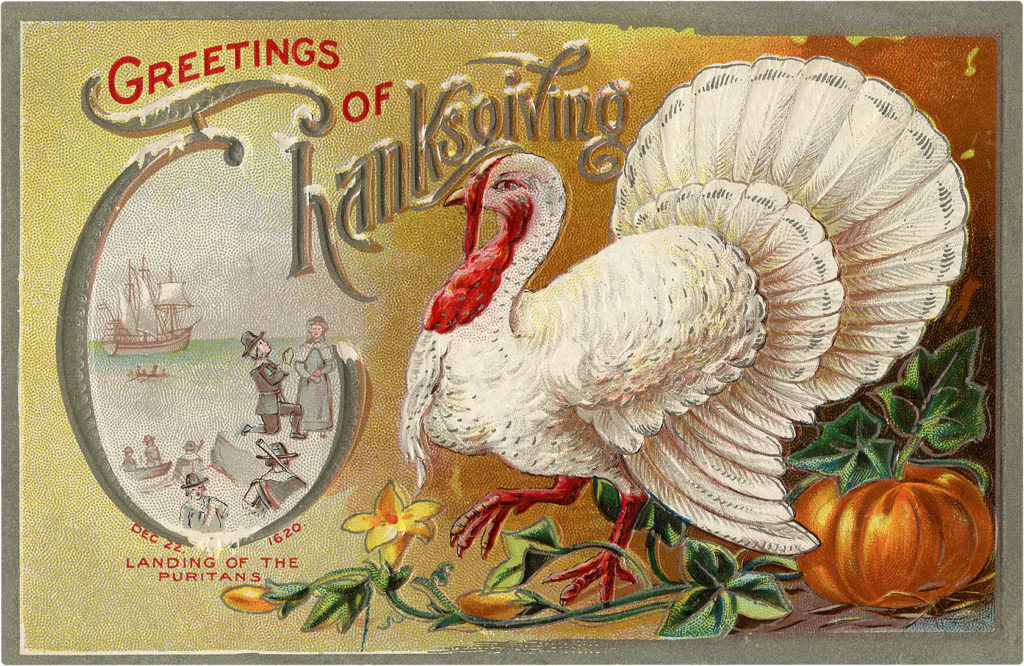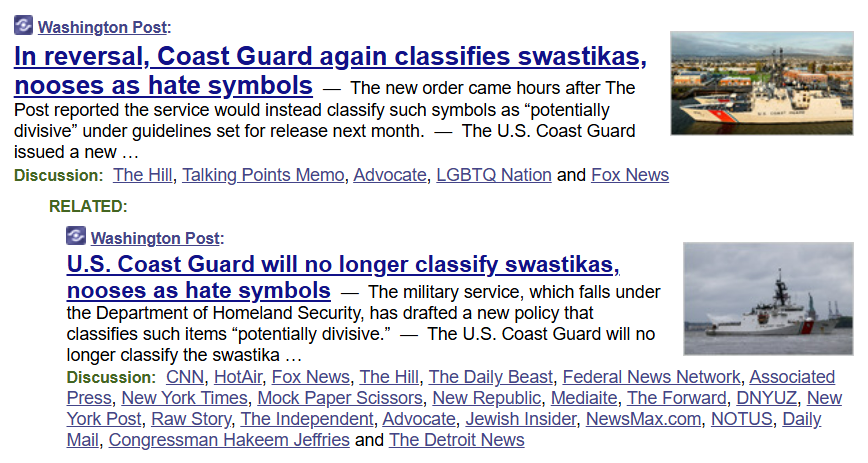Things are coming to a head in Ukraine. You’ve probably heard that Trump gave Ukraine a 28-point “peace plan” and warned that if Ukraine didn’t accept, the U.S. would withdraw all support. I’ve been looking at this “plan,” and it’s a bad joke. It was “negotiated” by Trump’s real-estate buddy Steve Witkoff, with input from Secretary of State Marco Rubio and Trump’s son-in-law Jared Kushner. [See update below — Marco Rubio is telling people it was entirely proposed by Russia.] No one in Europe or in the U.S. Congress was consulted about this. And also note that today Trump is saying that the plan isn’t necessarily the “final offer,” which probably means the rest of the world got back to him with a big HELL NO.
I’m going to quote a lot of people here, starting with Heather Cox Richardson.
The plan appears to have been leaked to Barak Ravid of Axios by Kirill Dmitriev, a top ally of Russia’s president Vladimir Putin, and reports say it was worked out by Dmitriev and Trump’s envoy Steve Witkoff. Ukrainian representatives and representatives from Europe were not included. Laura Kelly of The Hill reported on Wednesday that Congress was blindsided by the proposal, …
…The plan gives Crimea and most of the territory in Ukraine’s four eastern oblasts of Kherson, Zaporizhzhia, Donetsk, and Luhansk to Russia, and it limits the size of the Ukrainian military.
It erases any and all accountability for the Russian attacks on Ukrainian civilians, including well-documented rape, torture, and murder. It says: “All parties involved in this conflict will receive full amnesty for their actions during the war and agree not to make any claims or consider any complaints in the future.”
It calls for $100 billion in frozen Russian assets to be invested in rebuilding and developing Ukraine. Since the regions that need reconstruction are the ones Russia would be taking, this means that Russian assets would go back to Russia. The deal says that Europe, which was not consulted, will unfreeze Russian assets and itself add another $100 billion to the reconstruction fund. The plan says the U.S. “will receive 50 percent of the profits from this venture,” which appears to mean that Europe will foot the bill for the reconstruction of Ukraine—Russia, if the plan goes through—and the U.S. and Russia will split the proceeds.
The plan asserts that “Russia will be reintegrated into the global economy,” with sanctions lifted and an invitation to rejoin the Group of Seven (G7), an informal group of countries with advanced economies—Canada, France, Germany, Italy, Japan, the United Kingdom, and the United States, along with the European Union—that meets every year to discuss global issues. Russia was excluded from the group after it invaded Ukraine in 2014, and Putin has wanted back in.
According to the plan, Russia and “[t]he US will enter into a long-term economic cooperation agreement for mutual development in the areas of energy, natural resources, infrastructure, artificial intelligence, data centres, rare earth metal extraction projects in the Arctic, and other mutually beneficial corporate opportunities.”
The plan requires Ukraine to amend its constitution to reject membership in the North Atlantic Treaty Organization (NATO). It says “[a] dialogue will be held between Russia and NATO, mediated by the US, to resolve all security issues and create conditions for de-escalation to ensure global security and increase opportunities for cooperation and future economic development.”
Not only does this agreement sell out Ukraine and Europe for the benefit of Russia—which attacked Ukraine—it explicitly separates the U.S. from NATO, a long-time goal of Russia’s president Vladimir Putin.
Sorry for the long quote, but that’s as good a summation as I could find. I especially like the part about Europe paying for reconstruction and Russia and the U.S. splitting the proceeds.
Now, let’s go to Anne Applebaum at The Atlantic.
The 28-point peace plan that the United States and Russia want to impose on Ukraine and Europe is misnamed. It is not a peace plan. It is a proposal that weakens Ukraine and divides America from Europe, preparing the way for a larger war in the future. In the meantime, it benefits unnamed Russian and American investors, at the expense of everyone else.
The plan was negotiated by Steve Witkoff, a real-estate developer with no historical, geographical, or cultural knowledge of Russia or Ukraine, and Kirill Dmitriev, who heads Russia’s sovereign-wealth fund and spends most of his time making business deals. The revelation of their plan this week shocked European leaders, who are now paying almost all of the military costs of the war, as well as the Ukrainians, who were not sure whether to take this latest plan seriously until they were told to agree to it by Thanksgiving or lose all further U.S. support. Even if the plan falls apart, this arrogant and confusing ultimatum, coming only days after the State Department authorized the sale of anti-missile technology to Ukraine, will do permanent damage to America’s reputation as a reliable ally, not only in Europe but around the world.
Again, TACO Trump today announced this plan wasn’t necessarily the final offer. He must have felt some scorching blowback from Europe.
Applebaum goes on to describe how the details of the plan would leave Ukraine vulnerable to another Russian invasion in the future. The plan mentions “security guarantees” without spelling out what they are. And, of course, there is no reason to believe Trump would abide by them, anyway.
Why is the Trump White House pushing Ukraine to accept a Russian plan that paves the way for another war? The document offers some hints, declaring that the U.S. would also somehow take charge of the $100 billion in frozen Russian assets, for example, supposedly to invest this money in Ukraine and receive “50% of the profits from this venture.” Europeans, whose banks actually hold most of these assets, would receive nothing. European taxpayers, who currently provide almost all of the military and humanitarian support to Ukraine, are nevertheless expected to contribute $100 billion to Ukraine’s reconstruction.
Yep, sounds like a deal Trump’s people would think up. The plan also vaguely describes future business ventures between the U.S. and Russia.
Other details of the business negotiations carried out by Witkoff and Dmitriev remain secret. Ukrainians and Europeans, who would pay the military and economic price for this plan, deserve to know them. Above all, American citizens should be asking for the details of any business negotiations now under way. This plan has been proposed, in our name, as a part of U.S. foreign policy. But it would not serve our economic or security interests. So whose interests would it serve? Which U.S. companies and which oligarchs would benefit? Are Trump’s family members and political supporters among them? The arrangements on offer should be public knowledge before any kind of deal is signed.
I’m sure the Trump family has already worked out a plan for steering a lot of those “proceeds” into Trump family pockets. Otherwise, what’s the point? See also A DMZ for Ukraine by Simon Shuster and Jonathan Lamire at The Atlantic. Setting up a DMZ between east and west Ukraine is part of the plan, too.
My impression is that Europe is scrambling to be sure this plan is, um, seriously amended. See G20 Leaders Push Back on U.S. Peace Plan for Ukraine by John Eligon and Michael Schwirtz in The New York Times.
In a joint statement adopted Saturday the leaders of 11 nations — including Germany, France, Britain, Japan and Canada — and the European Union said the 28-point plan included “important elements that will be essential for a just and lasting peace.”
But they also made clear that they took issue with provisions of the plan that would strip Ukraine of territory and limit the size of its armed forces.
“What is at stake is Ukrainian sovereignty and European security,” President Emmanuel Macron of France said on Saturday, adding that European countries would work with the Ukrainians over the next two days to create a plan for the way forward.
This is setting up a contest with the U.S. and Russia on one side and all of America’s allies on the other. What could go wrong? And what would happen if Ukraine just says no?
Considering also Trump’s lame duck status, IMO there’s a possibility that if this mess were signed, the Senate might refuse to ratify it (per the Constitution, Article II. Section 2. paragraph 2). Actually, it says here “The Senate does not ratify treaties. Following consideration by the Committee on Foreign Relations, the Senate either approves or rejects a resolution of ratification. If the resolution passes, then ratification takes place when the instruments of ratification are formally exchanged between the United States and the foreign power(s).” Okay.
The “ranking members” on the Senate Committee on Foreign Relations have already put out a statement expressing disagreement with the plan. As for the Republicans, some of the Senate’s GOP Russia hawks are not happy with this plan. But those Russia hawks are somehow not on the Senate foreign relations committee. So perhaps that’s a long shot.
It’s been a while since I’ve read Thomas Friedman in the New York Times. Friedman says that Trump is now the winner of a peace prize — the Neville Chamberlain peace prize.
To all the gentlemen who delivered this turkey to Moscow, I can offer only one piece of advice: Be under no illusions. Neither Fox News nor the White House spokeswoman Karoline Leavitt will be writing the history of this deal. If you force it upon Ukraine as it is, every one of your names will live in infamy alongside that of Chamberlain, who is remembered today for only one thing.
I say this is a disservice to Chamberlain. Chamberlain may have been naive and misguided, but his failed bid for “peace in our time” at least didn’t attempt to make a financial profit from the “peace.”
… if this plan is forced on Ukraine as is, we will need to add a new verb to the diplomatic lexicon: “Trumped” — to be sold out by an American president, for reasons none of his citizens understand (but surely there are reasons). And history will never forget the men who did it — Donald Trump, Steve Witkoff, Marco Rubio, Dan Driscoll — for their shame will be everlasting.
I think Friedman is against it.
Anyway– this plan is awful. There’s nothing more to say about it. I hope it falls through.
Update: This is interesting. From Politico —
U.S. lawmakers attempted Saturday to reverse days of confusion around a leaked peace plan for Ukraine, saying Secretary of State Marco Rubio assured them the document does not represent the Trump administration’s position.
Rubio called the bipartisan delegation to the Halifax International Security Forum on Saturday afternoon, they said, while en route to Geneva for talks with Ukrainian officials. He described the plan as a Russian proposal, they said, and not a U.S. initiative.
“He made it very clear to us that we are the recipients of a proposal that was delivered to one of our representatives,” said Sen. Mike Rounds (R-S.D.). “It is not our recommendation. It is not our peace plan. It is a proposal that was received, and as an intermediary, we have made arrangements to share it — and we did not release it. It was leaked.”’
Sounds like Little Marco is trying to wash his hands of this mess. I did read somewhere that the text of the agreement clearly was originally written in Russian and translated into English. So Rubio might be telling the truth here. But Trump smacked Ukraine with this plan as if it were his.



